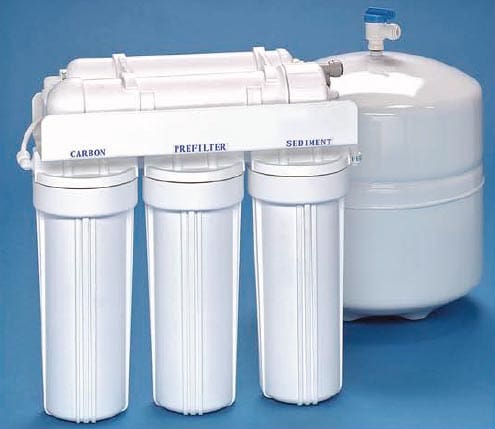What is The healthiest water to drink
One of the main rules of health and nutrition is to drink adequate amounts of water. The question is what is the healthiest water to drink? According to research, our body can survive weeks without any food, yet will only last a few days without water. It is important that we have access to the best drinking water. This is because 60% of our body is made out of water. Thus, dehydration is bad for our physical and mental well-being.
Many people are concerned about the quality of the tap water they consume though, only a few take action to find out and correct any issues. Drinking contaminated water is a serious health hazard. Safeguarding tap water is straightforward and cost-effective. The two most common solutions are either boiling or filtering tap water.
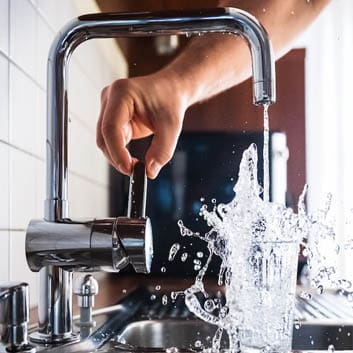
Is it safe to drink tap water?
Many of us don’t think about the quality of the water we drink. Some people assume that the tap water in their homes is safe since it comes from a public water system strictly maintained by a municipality.
Water that leaves the treatment plant and travels to your house has undergone a purification process that meets stringent safety standards. That being said, the purification process may not necessarily free the water of all contaminants. There might be low amounts of contaminants left in the water, which may not pose any significant health risk.
The purification process is liable to accidents, and sometimes the water may come into your home with illness-causing contaminants. In most cases, the supplier will inform you of the hazard and recommend alternative means of getting safe drinking water. Thus, your tap water may not be safe after all.
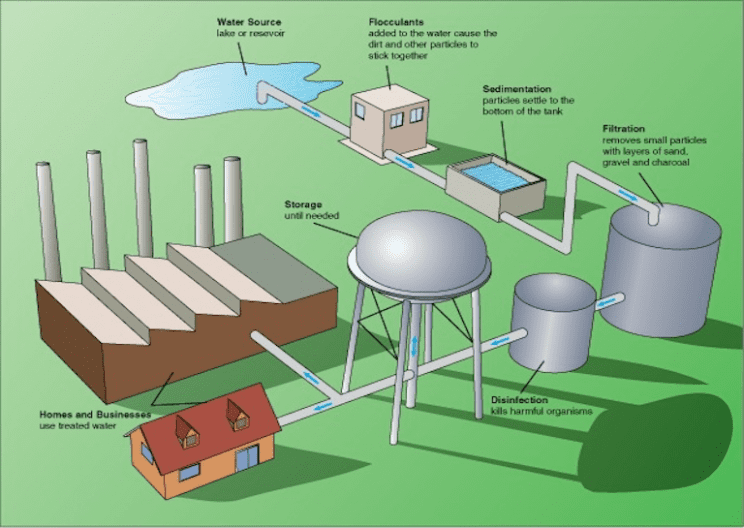
What Causes Contaminated Tap Water?
Contaminants get into the water in several ways. Water acquires parasites and bacteria when it comes into contact with animal or human fecal matter. Chemical contaminants come from spraying crops and industrial waste. Many fertilizers use nitrate, which may enter water as its passes through the land. Hazardous minerals such as mercury and lead can enter the water supply through factories disposing of pollutants into water or natural deposits found underground. Lead can also get into your drinking water through the corrosion of old lead pipes. Breaks in the waterline and weather events such as storms or flooding can also cause contamination.
Here’s a link to learn more about Water Pollution.
Most municipalities set testing schedules for various pollutants to maintain water safety levels. However, even low amounts of contaminants can affect pregnant women, children and infants, cancer patients, and other vulnerable people.
On the other hand, private wells are not regulated by the government, so for the Canadians who consume well water, their water is affected by many factors; location, construction and maintenance of the well, human activities, and the quality of the aquifer that supplies the well.
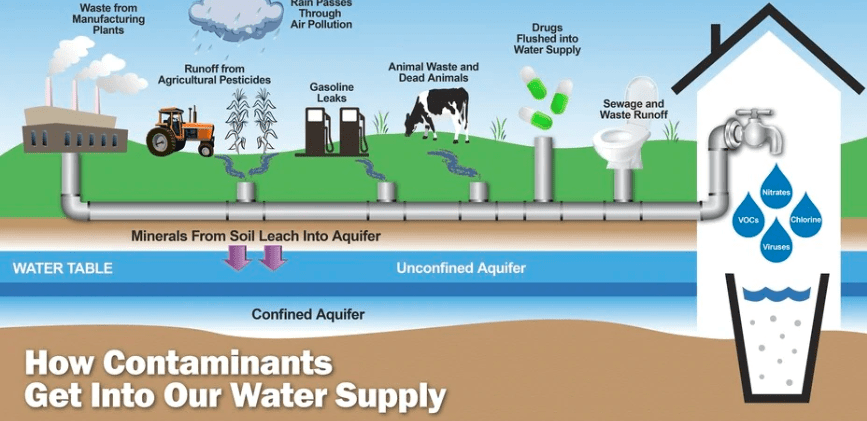
What are the Pros and Cons of Boiling Water?
Boiling water is an easy way to purify drinking water since you likely have a kettle sitting in your home. Even if you are stuck in the wilderness, boiling water is still a feasible solution as long as you can acquire a source of heat. This method has proven effective for thousands of years.
Here are the advantages:
- This is a very simple method, and it does not involve any complex external tools. Many health inspectors advise boiling water, especially when the quality of public water is compromised, for example, in boil water notices.
- It kills pathogens, protozoa, and viruses effectively.
Here are the disadvantages of boiling water:
- Using this method can only eliminate microbes and cannot eradicate hazardous chemicals like chlorine and heavy metals like lead from tap water. Boiling water containing lead will concentrate the contaminant, making it even more dangerous than before.
- It also affects the taste of the water. Boiled drinking water may taste flat. To remove this taste, you will have to aerate the water by pouring it between two containers.
- If you want to use boiled water for everything, the process will become expensive, especially the energy cost in your house.
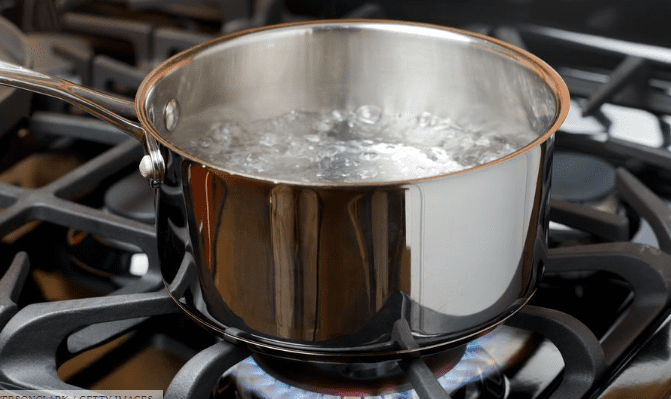
What are the Pros and Cons of Water Filter?
Alternatively, you can use a water filter. This includes a range of products in the market. There are many different types of water filters out there that are used to treat a wide variety of contaminants. Some types of filters include alumina and activated carbon, reverse osmosis, UV, or ceramic, which work on different levels of filtration.
People prefer filtering water because:
- Filtering kills bacteria, viruses, and protozoa. Most of these microbes cannot stand the chemicals or methods used in the filtration process, and it
- It clears traces of chemicals such as heavy metals, chlorine, and limescale.
- It eliminates odor.
- Filtering is faster than boiling water. You can enjoy your water with the lift of a faucet handle or the touch of a button.
Moreover, if you compare it to boiling water, it is more convenient. You will have enough water to make coffee, drink, and cook all day. It also increases the flavor and smell of the water because it removes the impurities, therefore, improving taste. Most importantly, filtering water will not endanger your health, so you won’t need to worry about the filtration process.
Lastly, there are many options to choose from, and you are free to pick one that will suit your home and needs. For example, you can place one in your faucet, under the sink, or even for the water system in your entire home.
The advantage of filtering water is the reasonable start-up cost and the low cost of replacing the filters, which should be done yearly in most cases. This method also has a remarkable return on investment. It costs pennies to filter a liter of water, compared to how much you would spend on bottled water, it is relatively inexpensive.
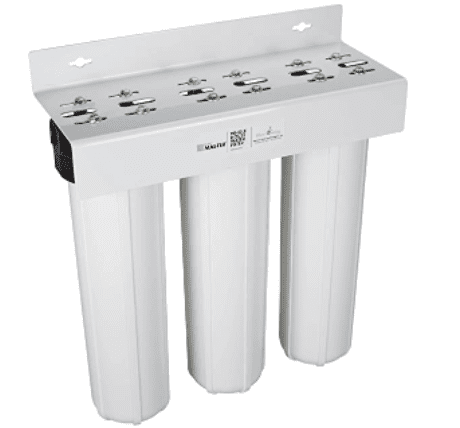
Do you boil water before or after filtering?
Well, it depends on the quality and type of water filter you use. Basic water filters will remove chlorine, dirt, and sediments, but may not remove the microbes in the water. Alternatively, you are free to use more advanced versions like a reverse osmosis filter which will eliminate 99% of common water contaminants like organic compounds, heavy metals, chlorine, pesticides, chemicals, arsenic, and much more.
However, if there is a vulnerable person or someone with a weak immune system, then you should consider boiling water to prevent them from getting sick. Filtration is the best process if you want to safeguard the quality of your drinking water.
